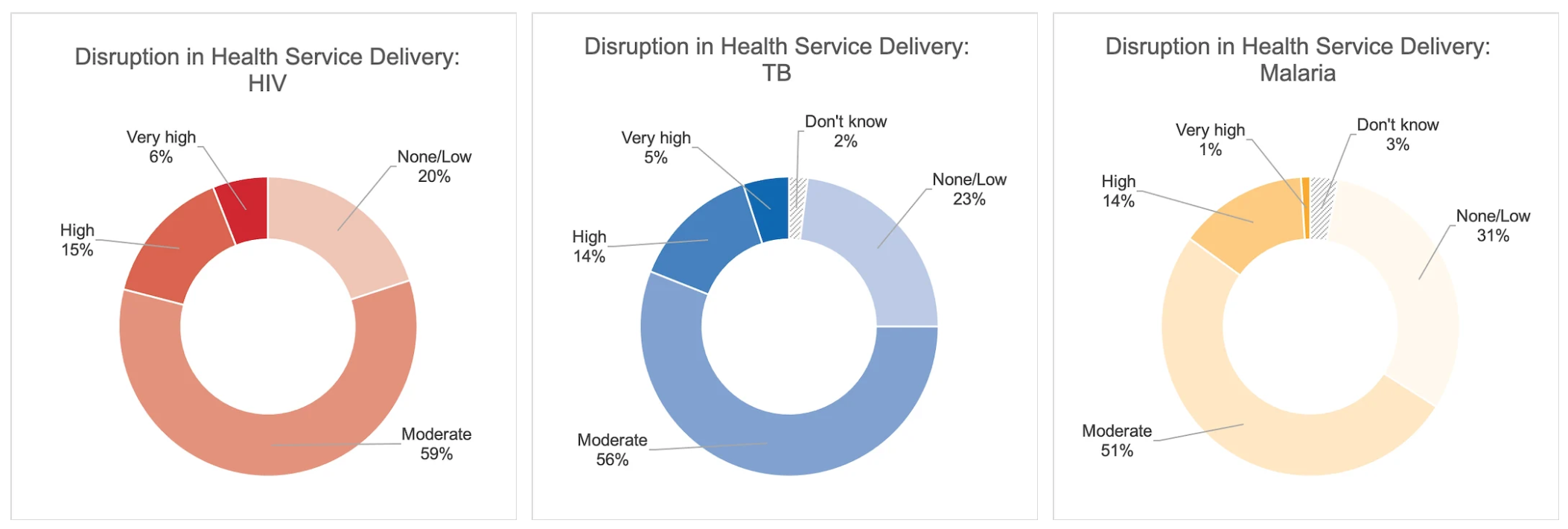June 24, 2020
New Global Fund Report: Funding Needed to Mitigate The Impact Of COVID-19 as HIV, TB And Malaria Deaths Could Nearly Double
As the global effort to end HIV, tuberculosis and malaria around the world faces new challenges due to COVID-19, the Global Fund to Fight AIDS, Tuberculosis and Malaria has published a new report titled, “Mitigating The Impact Of COVID-19 On Countries Affected By HIV, Tuberculosis And Malaria.”
Focusing on the countries the Global Fund invests in to fight HIV, TB and malaria, the Global Fund estimates that at least US$28.5 billion is required for the next 12 months to adapt HIV, TB and malaria programs to mitigate the impact of COVID-19, to train and protect health workers, to reinforce systems for health so they don’t collapse, and to respond to COVID-19 itself, particularly through testing, tracing and isolation and by providing treatments as they become available.
The Global Fund is a founding partner of the Access to COVID-19 Tools Accelerator (ACT-Accelerator) – a global collaboration to accelerate development, production and equitable access to new COVID-19 technologies.
For its portion of the $28.5 billion, if the Global Fund secures a further $5 billion for the next year, it could:
- Adapt HIV, TB and malaria programs to mitigate the impact of COVID-19 and safeguard progress
- Protect front-line health workers through training and provisions of PPE
- Reinforce critical aspects of health systems for health to avoid collapse and to sustain the response
- Fight COVID-19, particularly through testing, tracing and supporting isolation, and through treatment services (as therapeutics become available).
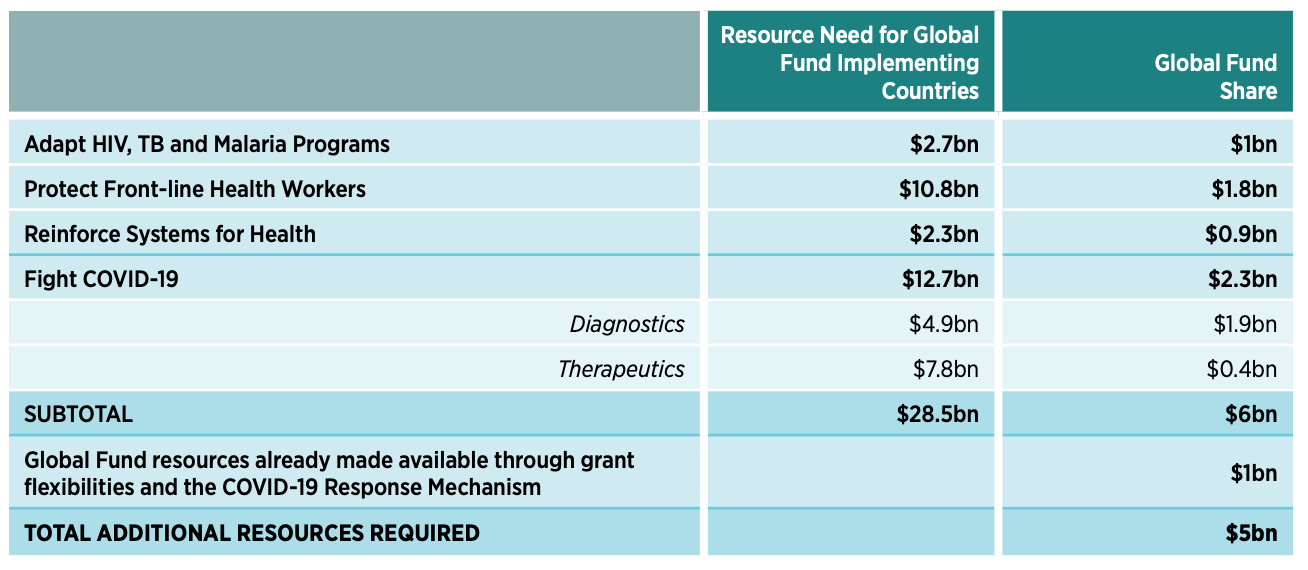
In 2018, combined deaths from HIV, TB and malaria amounted to 2.4 million people. Without decisive action, COVID-19 could double that annual death toll across the three diseases, a set back to levels not seen since the peak of the epidemics, wiping out nearly two decades of progress.
HIV/AIDS
The world faces potentially 534,000 additional AIDS-related deaths in 12 months over 2020-2021 compared to 2018 as a result of the COVID-19 pandemic.
HIV prevention programs are seeing significant disruption, often depending on community and face-to-face interventions rendered impossible during lockdowns. Similarly, access to lifesaving antiretrovirals has been made more difficult for some by restrictions on movement, local stockouts, and in some cases, increased stigma and discrimination.
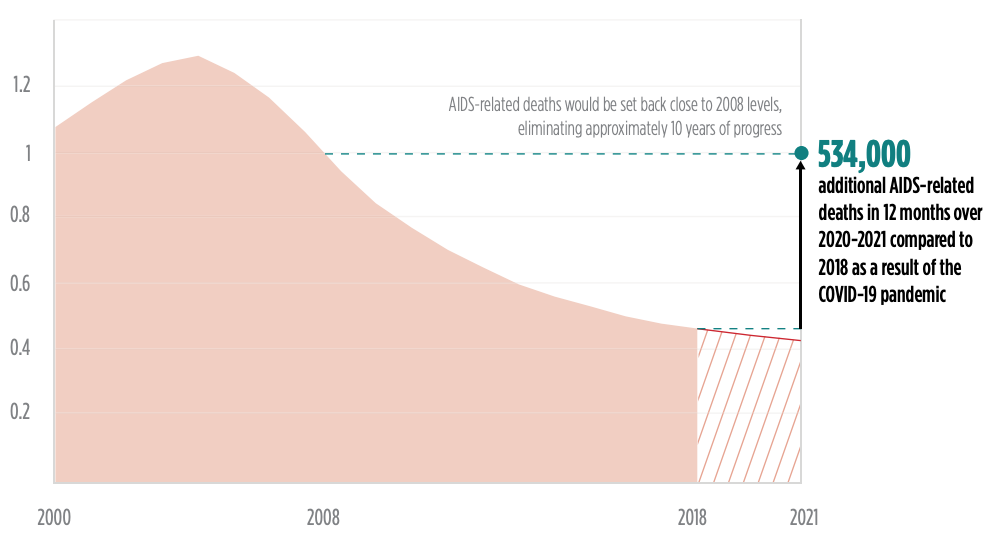
Tuberculosis
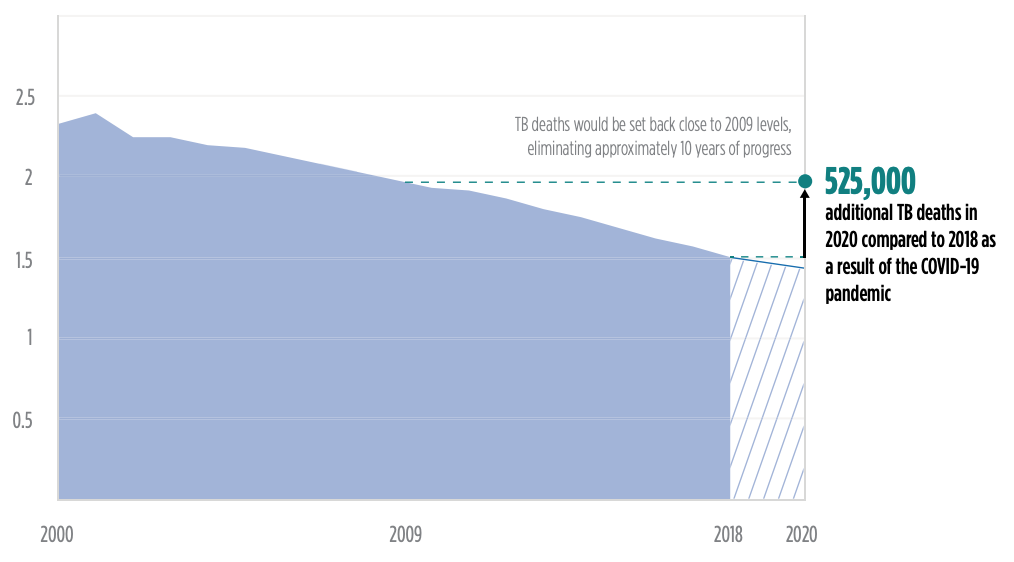
There could be 525,000 additional TB deaths in 2020 compared to 2019 as a results of the COVID-19 pandemic.
TB’s potential for confusion with COVID-19, given the similarity of initial symptoms and the diversion of diagnostic resources, risks fueling stigma and hindering case finding. As with HIV, some people with TB have encountered difficulties in sustaining treatment.
Malaria
The world could see 382,000 additional malaria deaths in 2020 compared to 2018 as a result of the COVID-19 pandemic.
Delays in mosquito net distribution and indoor spraying programs have threatened to undermine vector control for malaria. Meanwhile the testing and treatment of people with fevers, particularly children, depends critically on the availability of health workers, who might be unable to travel, sick or scared to expose themselves without protective equipment.
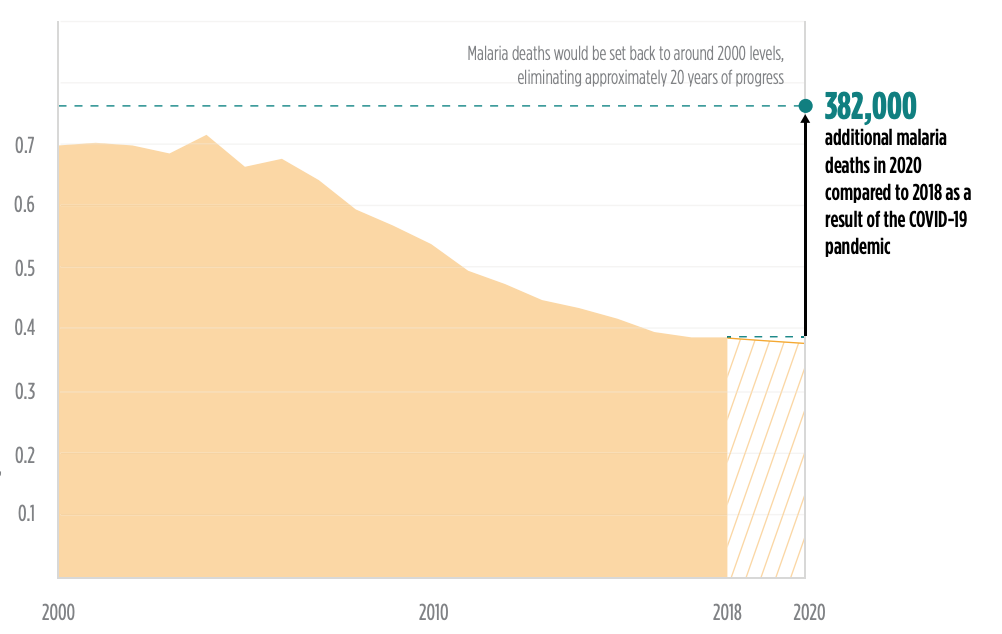
A recent Global Fund survey found that, across 106 countries, three-quarters of HIV, TB and malaria programs are facing disruptions due to COVID-19.
